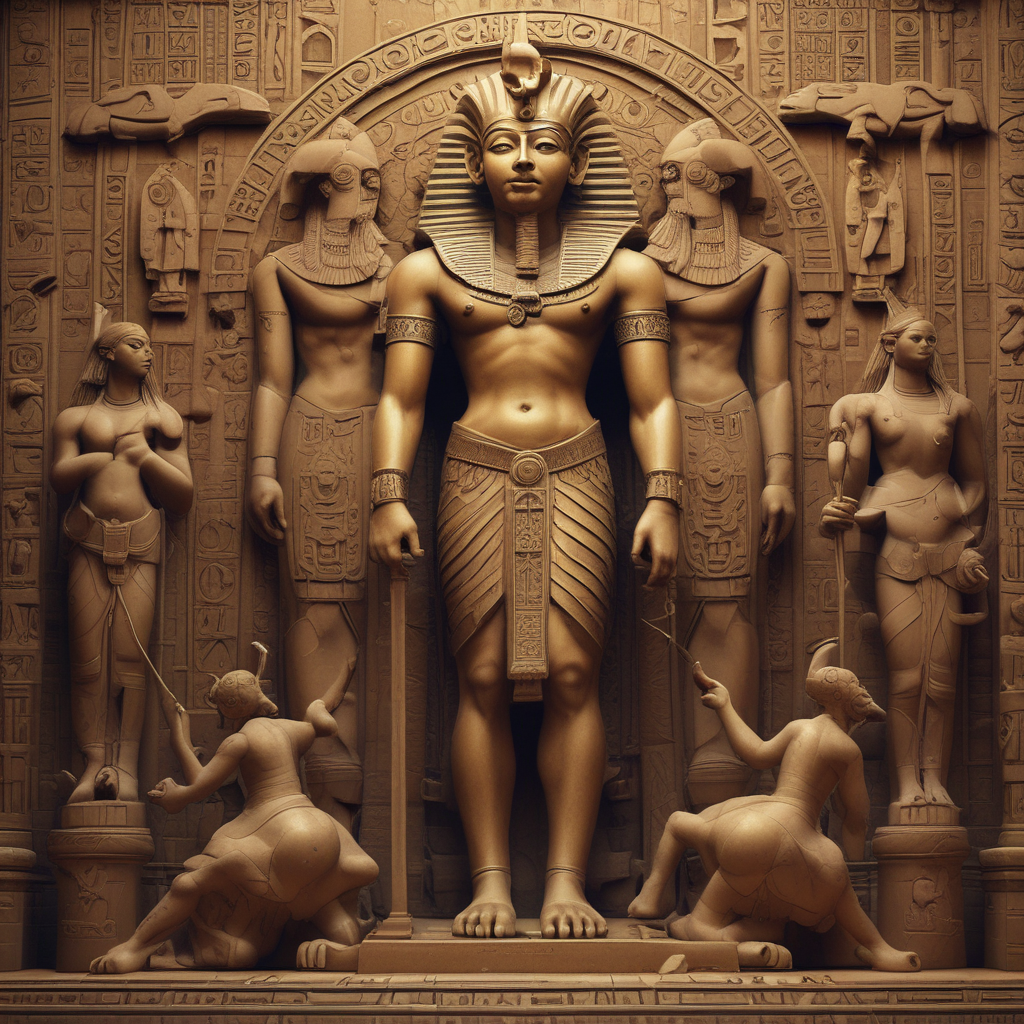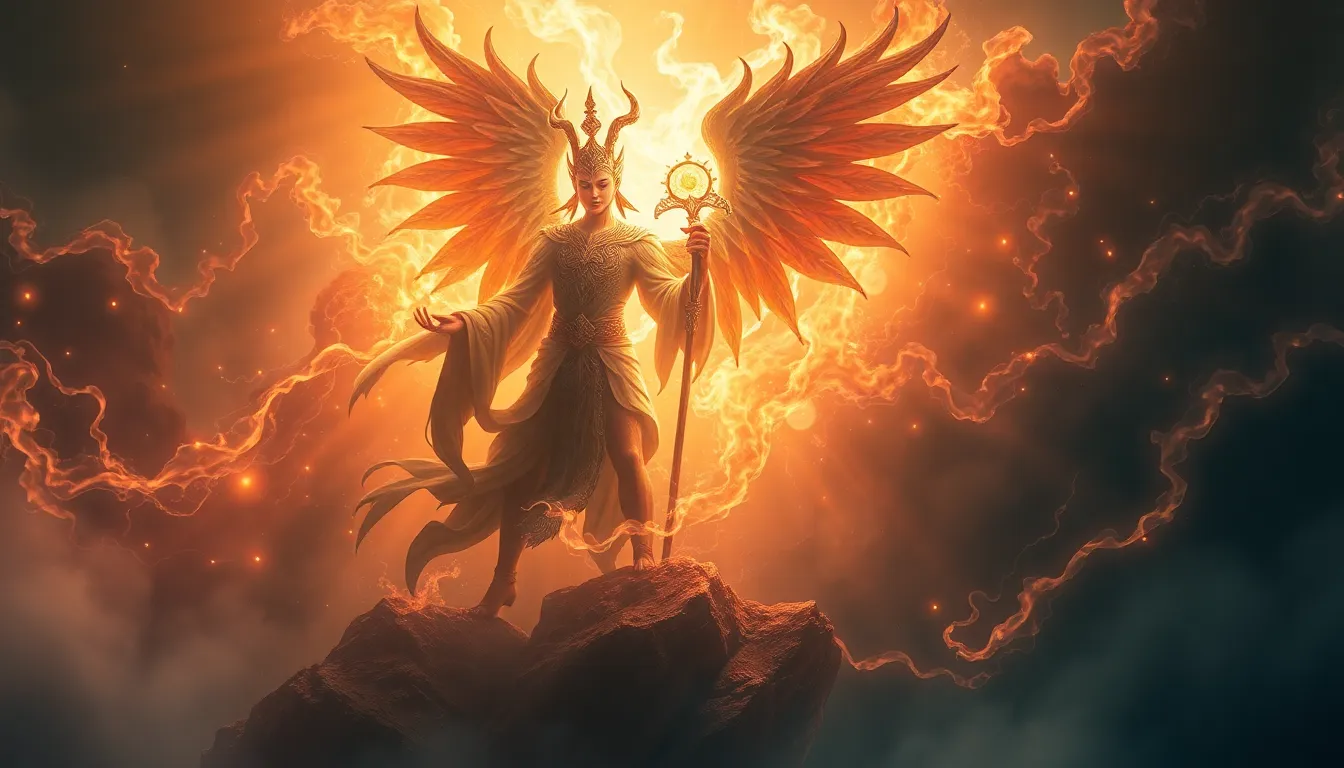The Top 7 Myths About the Apocalypse You Never Knew
I. Introduction
The term “apocalypse” often evokes images of catastrophic events and end-of-the-world scenarios. It is derived from the Greek word “apokalypsis,” meaning revelation or unveiling. Traditionally, the apocalypse has been understood as a moment in time when the world as we know it comes to an end, often accompanied by divine judgment.
Common narratives surrounding the apocalypse can be found in religious texts, popular culture, and even scientific discussions about the future of humanity. These stories often shape our perceptions of reality and influence our behavior. However, many of these narratives are steeped in myths that require scrutiny and debunking.
This article aims to explore and dispel some of the most prevalent myths about the apocalypse, enabling a clearer understanding of what the future might hold.
II. Myth 1: The Apocalypse Will Occur on a Specific Date
One of the most enduring myths about the apocalypse is the belief that it will occur on a specific date. This idea has been perpetuated throughout history, often leading to widespread panic and disappointment.
- Historical predictions and their failures: Numerous doomsday predictions have been made, from the Mayan calendar prophecy in 2012 to various predictions by religious leaders. All have failed to materialize.
- The role of religious texts in date-setting: Many predictions are rooted in interpretations of religious texts, which are often misinterpreted or taken out of context.
- Psychological factors behind date fixation: The human tendency to seek certainty and closure can lead to an obsession with predicting the end of the world.
III. Myth 2: The Apocalypse is Exclusively a Religious Concept
While many apocalyptic narratives are found in religious contexts, the idea of an apocalypse is not limited to religion.
- Secular interpretations of the apocalypse: Modern concerns such as nuclear war, environmental collapse, and technological disasters have led to secular apocalyptic narratives.
- Cultural representations and their influence: Literature, film, and art have explored apocalyptic themes, influencing societal attitudes toward potential endings.
- The blending of science and spirituality in apocalyptic thinking: Many contemporary apocalyptic scenarios combine scientific predictions with spiritual interpretations, creating a complex narrative.
IV. Myth 3: Natural Disasters are Signs of the Apocalypse
Many people interpret natural disasters as signs that the apocalypse is imminent. However, this perspective often overlooks the scientific realities of these events.
- Understanding natural disasters in a scientific context: Natural disasters result from geological, meteorological, and environmental processes, rather than being signs of divine judgment.
- Historical events mistaken for apocalyptic signs: Events such as the 1666 Great Fire of London or the 1815 eruption of Mount Tambora were once seen as heralding the end times.
- Media sensationalism and its impact on public perception: The media often amplifies natural disasters, leading to heightened fears of an impending apocalypse.
V. Myth 4: Only One Apocalypse is Possible
The notion that there is only one definitive apocalypse is misleading and simplistic. Different cultures and belief systems offer various interpretations.
- Different cultural and religious interpretations of apocalypse: Many cultures have their own versions of apocalyptic narratives, each with unique characteristics and outcomes.
- The idea of multiple potential apocalyptic scenarios: Scenarios could range from ecological collapse to technological dystopia, highlighting the unpredictability of the future.
- The role of technology and climate change in shaping future apocalypses: Current global challenges suggest that the future may hold numerous apocalyptic threats rather than a single event.
VI. Myth 5: Survivalists Have the Ultimate Preparation
Survivalists often claim that they are fully prepared for the apocalypse, but this mentality can be flawed and oversimplified.
- The survivalist mentality and its misconceptions: The belief that individual preparation can ensure survival neglects the importance of community support.
- Historical evidence of survival strategies and their effectiveness: Many historical survival strategies relied on cooperation and social networks rather than isolation.
- The importance of community and cooperation in crisis situations: In times of crisis, collective action is often more effective than individual survival tactics.
VII. Myth 6: The Apocalypse Will Bring an Instant Reset of Civilization
The romanticized vision of a post-apocalyptic world often overlooks the complexities of societal collapse.
- The romanticization of post-apocalyptic life: Media portrayals often depict a simplified version of survival after an apocalypse, ignoring the harsh realities.
- Societal collapse and its complexities: Historical collapses, such as the fall of the Roman Empire, reveal that the aftermath is often chaotic and brutal.
- Lessons from past societal disruptions: Understanding past events can provide insights into the potential challenges of a post-apocalyptic world.
VIII. Myth 7: The Apocalypse is Inevitable
The belief that the apocalypse is inevitable can lead to a sense of hopelessness, but this perspective fails to consider human agency.
- Exploring the concept of inevitability in human history: Throughout history, humanity has faced numerous crises but has often found ways to adapt and overcome.
- The role of human agency and innovation in shaping the future: Human creativity and problem-solving capabilities can steer society away from potential apocalyptic scenarios.
- Optimism vs. pessimism: the importance of perspective: A balanced perspective can foster hope and proactive measures rather than despair.
IX. Conclusion
The myths surrounding the apocalypse can shape our understanding of the future and influence our behavior. By debunking these myths, we can foster a more nuanced understanding of potential futures and the challenges we face.
Critical thinking about apocalyptic narratives is essential, as it encourages exploration of diverse perspectives and solutions. Rather than succumbing to fear, we should embrace a mindset that prioritizes resilience, cooperation, and innovation.
X. Further Reading and Resources
- Recommended books and articles on apocalyptic studies:
- “The End of Days: Predictions and Prophecies About the End of the World” by Sylvia Browne
- “Apocalypse: A History of the End of Times” by Tom Holland
- Documentaries and films that challenge apocalyptic myths:
- “The Last Man on Earth” – a film exploring the aftermath of a global plague.
- “Before the Flood” – a documentary addressing climate change and its implications.
- Online forums and communities for discussing apocalyptic themes:
- Reddit’s r/apocalypse subreddit for discussions and theories.
- The End Times Forum for sharing ideas and beliefs regarding apocalyptic events.



